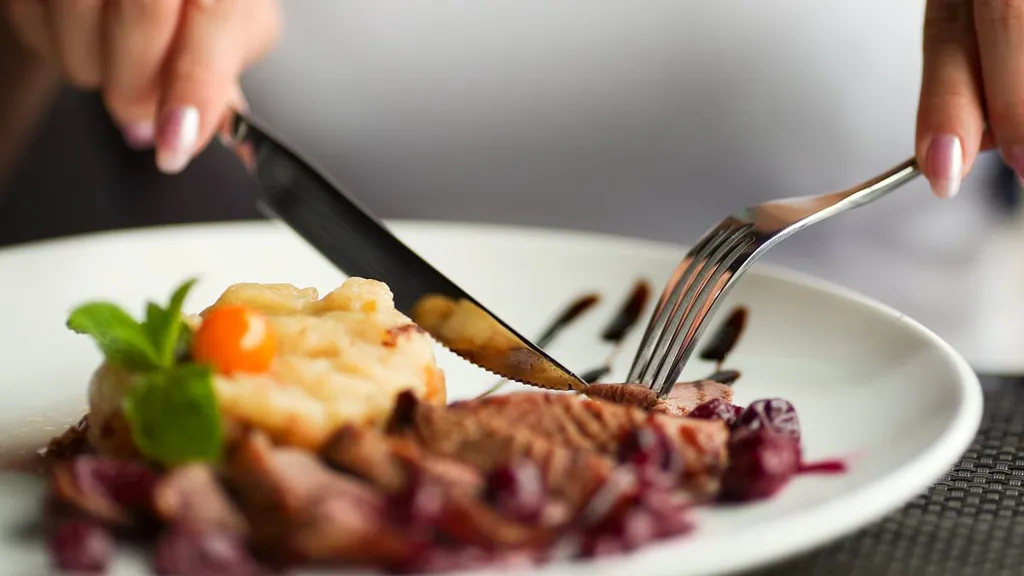Eating eggs and vegetables before chips could help you stay thin, research from US scientists suggests.
Experts from Stanford University tested if eating a dose of fibre, protein or fat before carbohydrates could reduce or delay blood sugar spikes.
Such spikes have been linked to obesity, as fluctuating blood sugar makes you more likely to suffer hunger pangs and therefore snack on calorific foods in between meals.
But the experts found this process could be interrupted by changing not what people eat, but in what order.
In the experiment, scientists took 55 volunteers, about half of which had signs of pre-diabetes, a precursor to type 2 diabetes that involves higher-than-normal blood sugar levels.
They then gave each participant a meal consisting of rice on three separate occasions while they wore devices to measure blood sugar levels called continuous glucose monitors.
Ten minutes before each meal participants were given either a fibre supplement, protein in the form of boiled egg whites, or dairy fat from crème fraîche.
Analysing the results, they found eating fibre or the egg protein first lowered the blood sugar spike that came from the energy-dense rice.
Eating fat before the carbohydrates didn't lower the blood sugar spike but did delay it from happening.
This suggests that eating fibre-rich foods like vegetables, and proteins like eggs before tucking into carbohydrates could prevent rocketing blood sugar that leads to a hunger-inducing crash.
Professor Michael Snyder, an expert in genetics author of the study, said diners should try to eat their meals in a specific order.
'Eating carbohydrates later in a meal is still a good idea even though it has not yet been sorted out whether it is best to eat protein, fat or fibre before carbohydrates,' he said.
'Eat your salad or hamburger before your French fries.'
The researchers also noted that the impact of fibre, protein and fat on blood sugar levels was less significant among participants with signs of pre-diabetes.
The authors said this was an area in need of further research.
Carbohydrates, a group that includes rice, potatoes, bread and pasta, are energy dense foods that are quickly converted to sugar in our blood, giving us the resources we need to function.
The NHS says carbohydrates should make up about a third of a person's daily diet.
Officials urge people to eat wholegrain varieties like brown bread or potatoes with the skin on as these come with higher levels of fibre and nutrients, and can slow the release of sugar in our bloodstream, maintaining fullness.
Almost 6million Britons have diabetes, of which 90 per cent is type 2, but charities estimate 1.2million are living with the disease undiagnosed.
While nationally, an estimated eight per cent of the population of England has the disease, this rises to over one in ten people in some parts of the country.
Type 2 diabetes occurs when the body doesn't make enough insulin or the insulin it makes doesn't work properly. Insulin is a hormone critical to controlling blood sugar levels.
Having high blood sugar levels over time can cause heart attacks and strokes, as well as problems with the eyes, kidneys and feet.
Sufferers may need to overhaul their diet, take daily medication and have regular check-ups.
Symptoms of the condition, which is diagnosed with a blood test, include excessive thirst, tiredness and needing to urinate more often. But many people have no signs.
